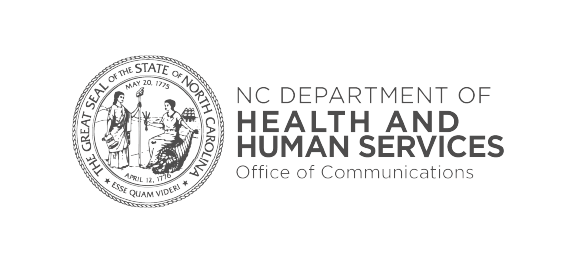Understanding Dementia: Signs, Causes, and Care in North Carolina
Dementia is a broad term used to describe a range of conditions characterized by cognitive decline, memory loss, and impaired decision-making. It is not a specific disease, but rather a collection of symptoms caused by various brain disorders—Alzheimer’s disease being the most common. For many families in North Carolina, developing dementia in a loved one can be overwhelming. Early memory concerns, such as difficulty recalling recent conversations or familiar tasks, may indicate the onset of a memory disorder and should be addressed by a healthcare provider immediately.
At Apogee Behavioral Medicine, we are committed to providing exceptional care for individuals and families navigating the challenges of dementia. Our dementia treatment services in North Carolina offer compassionate, personalized support for older adults and their care partners facing cognitive decline. Whether your loved one is showing signs of memory loss or has been formally diagnosed with Alzheimer’s disease or another form of dementia, our team is here to help guide you through every stage of care.
Understanding Memory Disorders
Memory disorders like Alzheimer’s, frontotemporal dementia, and other related dementias often begin subtly and progress over time. Mild cognitive impairment (MCI) is a condition where memory issues are present but daily functioning remains intact. However, MCI can increase the risk of developing dementia later in life. Identifying these early signs and understanding the associated risk factors is critical to beginning appropriate dementia care and treatment early. Access to professional guidance and memory disorder evaluations allows families to better prepare and plan for the future.
Cognitive Decline and Behavioral Changes
Dementia leads to significant changes in behavior and cognition. Common symptoms include memory loss, confusion, mood swings, and withdrawal from social interaction. Each type of dementia progresses differently, but early diagnosis can offer clarity, relief, and an opportunity to create a care plan that supports both quality of life and overall brain health.
Alzheimer’s Disease and Its Impact on Brain Health
Alzheimer’s disease affects brain areas related to learning and memory, gradually impairing a person’s ability to perform everyday tasks. Although there is currently no cure, early intervention and appropriate dementia treatment can help slow the disease’s progression. At Apogee, our team uses the latest evidence-based care strategies to support patients and their families through these complex changes.
Maintaining Brain Wellness to Prevent Cognitive Decline
Preventing or delaying cognitive decline begins with prioritizing brain health. A balanced lifestyle, including physical activity, a nutrient-rich diet, cognitive stimulation, and stress management, can protect cognitive function in older adults. For caregivers, family caregiver support and wellness are just as important. Ensuring the caregiver is supported emotionally and practically improves outcomes for everyone involved.
How to Identify Early Warning Signs of Dementia
It’s crucial to be aware of changes in memory, behavior, or daily functioning. Some early signs of dementia include:
- Memory loss that disrupts daily life, such as forgetting recently learned information or important appointments
- Difficulty completing familiar tasks, like managing finances or following a recipe
- Confusion with time or place, including forgetting where they are or how they got there
- Trouble understanding visual images or spatial relationships, which can lead to issues with balance or reading
- New problems with speaking or writing, such as forgetting common words or struggling to follow conversations
- Misplacing items and being unable to retrace steps to find them
- Changes in mood or personality, including increased anxiety, irritability, or withdrawal from social situations
If you notice any of these warning signs in yourself or a loved one, it’s important to seek professional help. Early diagnosis leads to better treatment options and improved outcomes.

Managing Dementia Symptoms and Enhancing Quality of Life
While dementia is progressive, its symptoms can be managed through medications, structured routines, and supportive environments. At Apogee Behavioral Medicine, our clinicians tailor treatment plans to address unique patient needs, incorporating therapy, medical care, and strategies to reduce confusion, agitation, and other behavioral symptoms. Lifestyle changes and regular check-ins allow families and care teams to adjust care plans as the condition evolves.
Dementia Care Options at Apogee Behavioral Medicine
Apogee offers several dementia care solutions across North Carolina. From initial evaluations and medication management to ongoing therapy and caregiver guidance, our goal is to provide exceptional care and stability during what can be a deeply challenging journey. Whether support is needed in the home, in an outpatient setting, or in coordination with residential care, our providers are here to ensure families have access to reliable resources and a personalized plan for dementia treatment in North Carolina.
We know dementia doesn’t just affect the individual—it affects entire families. That’s why we offer education, counseling, and access to support services. Family caregiver support and family support programs are essential for managing caregiver stress and improving patient outcomes. Research opportunities and clinical trials may also be available, giving families access to innovative treatments and care pathways.
Same Day Appointments Available
Apogee Behavioral Medicine offers same-day in-office or telehealth appointments. Let Apogee Behavioral Medicine guide you or your loved one on the path to recovery with our Eating Disorder therapists in North Carolina. Compassionate care starts here.

Contact Apogee Behavioral Medicine for Compassionate Dementia Support
Effective dementia treatment means more than symptom management—it’s about supporting families, educating care partners, and maintaining dignity and comfort for those diagnosed. Apogee Behavioral Medicine offers directly coordinated care that adapts with each patient’s changing needs. We proudly serve communities across North Carolina with a commitment to whole-person care and long-term support.
If you or someone you love is showing signs of dementia or a related memory disorder, contact Apogee Behavioral Medicine today to schedule a consultation. Together, we can create a thoughtful and effective plan for care.
FAQs About Dementia
While there is no cure, a combination of medications, therapy, and lifestyle changes can help manage symptoms and improve quality of life.
Avoid arguing about what they remember, correcting them harshly, or isolating them from familiar routines and people.
Yes, early intervention with medications, cognitive stimulation, and lifestyle adjustments can help delay progression and improve brain health.
Insurances Accepted
















Call us at (855) 409-9002 to see if you are covered.
Insurance plans may vary by state and are subject to change.
